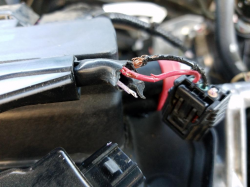— A Honda wiring lawsuit has been dismissed after the plaintiffs failed to convince the judge that Honda should pay for repairs to wiring that was chewed by rodents.
Plaintiff Michael Preston alleges he leased a 2015 Honda Accord in 2015 and in November 2016 his car lost power steering. He took the Accord back to the dealership and was told rodents chewed through the wiring, then was handed an invoice for $2,146.16.
According to the plaintiff, certain parts related to the power steering had to be replaced but none of it was covered under warranty.
Plaintiff Penelope Turgeon says she leased a Honda Civic in May 2017 and within a few months her car lost power steering, so she brought it back to the Illinois dealer.
The dealer said the car suffered major damage to the electronic power steering harness caused by rodents that chewed through bare wires. The dealer replaced the wiring and covered it with rodent tape and also replaced the power steering harness, but the plaintiff says she was charged $313.28.
Less than two weeks later, the plaintiff allegedly experienced another loss of power steering and was told her harness needed a second replacement. The dealer allegedly applied rodent tape but did not cover the repair under warranty.
According to the proposed class-action lawsuit, all new Hondas purchased or leased from an Illinois Honda dealership between May 2014 and May 2017 are defective because unspecified soy or bio-based components within the cars attract rodents that chew through wires and cause power steering malfunctions.
The plaintiffs further claim the automaker knew its cars were susceptible to rodent damage because it marketed and sold special rodent tape allegedly used to prevent rodents from munching the wires.
In ruling to dismiss the wiring lawsuit, the judge agreed with Honda and said the plaintiffs "do not allege which, if any, power steering components are soy or bio-based." In addition, the judge found the plaintiffs don't provide factual support for their "bald assertion that soy or bio components attract rodents."
The judge also had problems with the plaintiffs saying that “whether the chewed wire itself is soy or bio-based is irrelevant because any soy or bio-based component nearby creates the rodent-attractive environment.”
The judge found the plaintiffs failed to specify what they meant by “nearby,” potentially placing all components within the entire engine compartment at issue, not just power steering components.
According to the wiring lawsuit, “[t]he critical question is not which parts were soy or bio-based but whether the parts that Plaintiffs had to pay to replace in their vehicles were defective because they first had to be covered in rodent tape to withstand normal daily use.”
The plaintiffs argue the damaged wires themselves are defective simply because rodents enjoy chewing on them, even if the wires do not attract rodents.
The judge rejected this argument because "properly functioning wires are not rendered defective simply because rodents enjoy chewing on them. That rodent tape serves as a deterrent does not mean the wires are defective unless wrapped in tape."
The judge also ruled it's implausible Honda's use of rodent tape is an admission that its vehicles are defective and that the wiring is particularly attractive to rodents. According to the judge, Honda could be using rodent tape as a measure of good customer service and a solution to the problem of rodents chewing wires.
The plaintiffs also allege the Monroney labels (window stickers) advertised a 3-year/36,000-mile warranty that covered power steering problems, but Honda did not tell customers that rodent damage to power steering components wouldn't be covered.
The judge ruled the argument doesn't hold water because the plaintiffs "fatally" do not allege they ever read or relied on the Monroney stickers before purchasing their vehicles.
The Honda wiring lawsuit was initially filed in the District Court for the Northern District of Illinois but was later transferred to the U.S. District Court for the Central District of California - Michael Preston, et al., v. American Honda Motor Company, Inc.
The plaintiffs are represented by SmithMarco, P.C., and Bardo Law, P.C.

